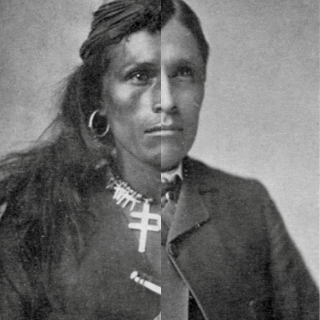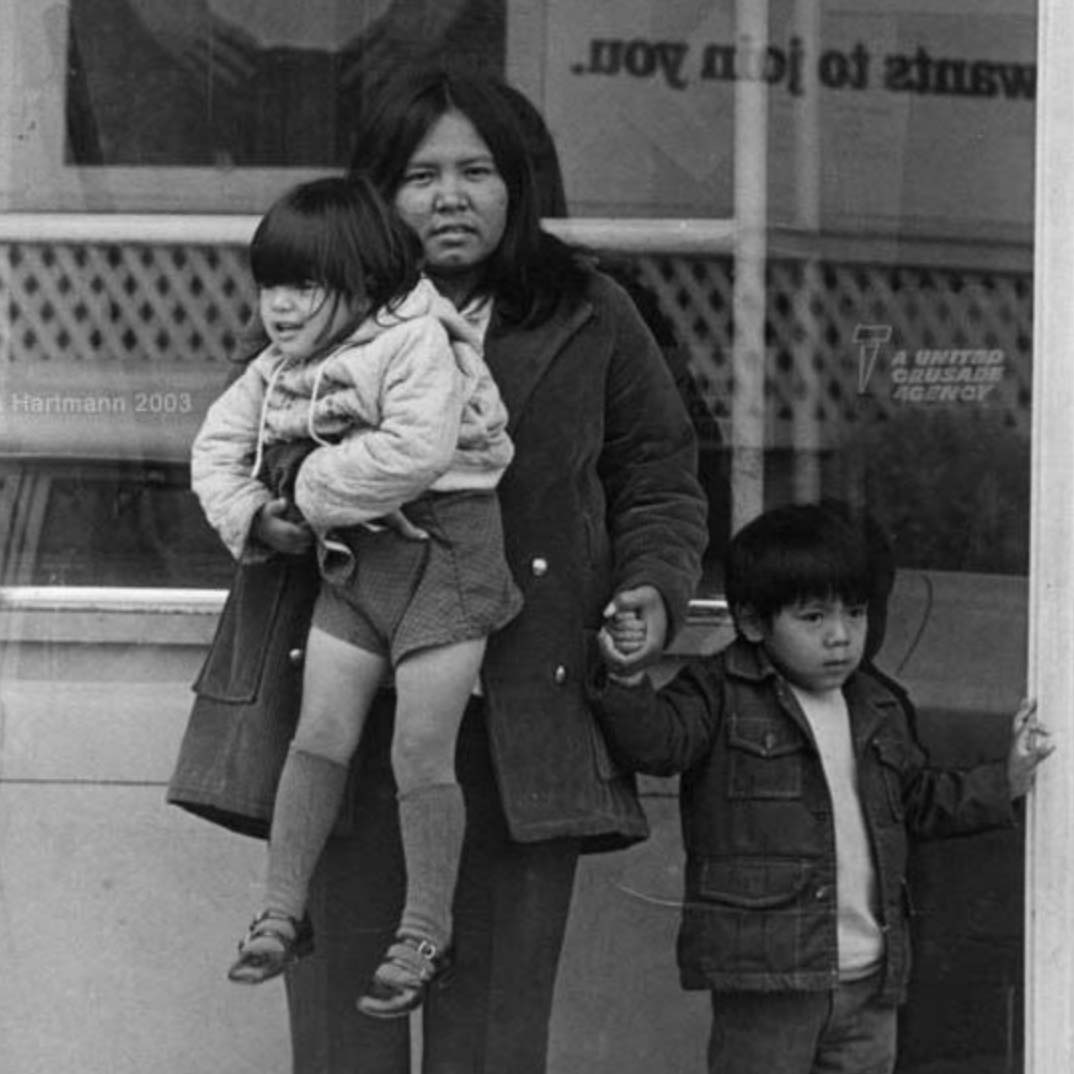1928 – 1945
In 1928, the Meriam Report (The Problem of Indian Administration) cited a long list of challenges facing Indigenous people as a result of the 1887 General Allotment Act and subsequent amendments and policies. Tribal nations had been left with little capacity for economic development on reservations, with much of the allotted land unsuitable for living or making a living. The report also addressed education for tribal youth. At the time, young people were forcefully removed from their families to attend far-away residential schools, which sought to “Americanize” them through Christian education, gender-role development, and acceptable social practices. The Meriam Report told of overcrowded conditions and serious deficiencies in nutrition and medical care. The economic collapse of 1929 led to the rise of Franklin D. Roosevelt, who ran on a platform addressing many of the issues in Meriam’s report. In 1934, Congress passed the Indian Reorganization Act which ended allotment as official federal policy while allowing some tribal nations to regroup, draft constitutions, and promote some forms of cultural revitalization. It would be another 40 years before most residential schools closed.





